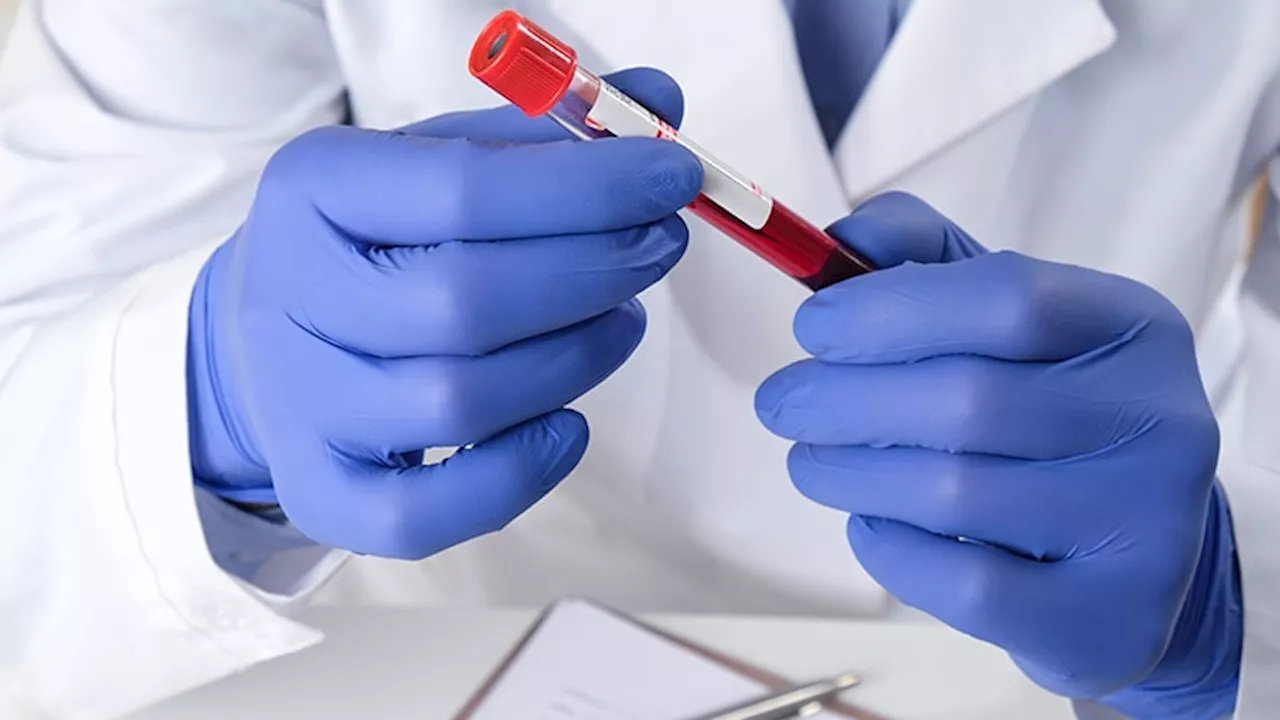A new study reveals that measuring Type I interferon (IFN) activity in the blood could predict how quickly limited cutaneous systemic sclerosis (lcSSc) progresses. Patients with higher IFN scores experienced more severe symptoms and a greater risk of complications.
A new study suggests that Type I interferon (IFN) activity, measured by a serum IFN score, could be a valuable tool for predicting disease progression in limited cutaneous systemic sclerosis (lcSSc). Patients with higher IFN scores experienced worse clinical outcomes, highlighting the potential of this biomarker in guiding treatment and management strategies.
Researchers conducted a longitudinal retrospective analysis involving 149 lcSSc patients (average age 60 years, 96% women, median disease duration 8 years) recruited between December 2013 and November 2019. The IFN score was calculated based on the concentration of six chemokines (CCL2, CCL8, CCL19, CXCL10, CXCL9, and CXCL11) in serum. A high IFN score was defined as two standard deviations above the mean score observed in 72 matched healthy control individuals. The primary outcome measure was time to clinical worsening, assessed using a composite Morbi-mortality endpoint that included disease-related mortality and organ manifestations. Patients with lcSSc had significantly higher serum chemokine concentrations compared to healthy controls, resulting in a significantly higher IFN score. Importantly, those with high IFN scores experienced a significantly shorter time to clinical worsening and faced a more than sixfold higher hazard of Morbi-mortality events compared to patients with low IFN scores. Other factors significantly associated with an increased likelihood of worsening clinical events included pulmonary artery hypertension, interstitial lung disease, digital ulcers, modified Rodnan skin score, and age. The authors concluded that type I IFN activation, reflected by the IFN score, may be a valuable tool for assessing disease activity and predicting clinically meaningful events in lcSSc
SYSTEMIC SCLEROSIS Lcssc INTERFERON BIOMARKER DISEASE PROGRESSION CLINICAL OUTCOMES
United States Latest News, United States Headlines
Similar News:You can also read news stories similar to this one that we have collected from other news sources.
 Honda HRC Performance Variants: Exceeding Type R and Type SHonda's performance division, HRC, is hinting at factory-built models equipped with high-performance parts from the get-go. These variants could surpass existing Type R and Type S models, offering an even more extreme performance experience. The first model is expected to be based on either the Honda Civic Type R or Acura Integra Type S. While a concrete plan is yet to be unveiled, Honda Racing president Koji Watanabe confirmed development of performance parts and the possibility of an HRC-branded model.
Honda HRC Performance Variants: Exceeding Type R and Type SHonda's performance division, HRC, is hinting at factory-built models equipped with high-performance parts from the get-go. These variants could surpass existing Type R and Type S models, offering an even more extreme performance experience. The first model is expected to be based on either the Honda Civic Type R or Acura Integra Type S. While a concrete plan is yet to be unveiled, Honda Racing president Koji Watanabe confirmed development of performance parts and the possibility of an HRC-branded model.
Read more »
 Flu Season 2023: What to Know About Type A vs. Type BThis article breaks down the differences between influenza A and B, their symptoms, severity, and prevalence during the current flu season. It also discusses flu vaccines, prevention measures, and treatment options.
Flu Season 2023: What to Know About Type A vs. Type BThis article breaks down the differences between influenza A and B, their symptoms, severity, and prevalence during the current flu season. It also discusses flu vaccines, prevention measures, and treatment options.
Read more »
 Genetic Risk Score Predicts Type 2 Diabetes in Individuals With Normal Weight and Blood SugarA new study suggests a genetic risk score for type 2 diabetes can predict disease onset in individuals with normal weight and blood sugar levels, challenging traditional screening approaches.
Genetic Risk Score Predicts Type 2 Diabetes in Individuals With Normal Weight and Blood SugarA new study suggests a genetic risk score for type 2 diabetes can predict disease onset in individuals with normal weight and blood sugar levels, challenging traditional screening approaches.
Read more »
 Sjögren's Disease Phenotypes Linked to Cytokine Profiles and IFN SignaturesA recent study investigated the relationship between distinct phenotypes of Sjögren's disease (SjD) and their associated cytokine profiles and interferon (IFN) signatures. Researchers found variations in cytokine levels and IFN signatures among three phenotypes: B-cell active with low symptom burden, high systemic activity with high symptom burden, and low systemic activity with high symptom burden.
Sjögren's Disease Phenotypes Linked to Cytokine Profiles and IFN SignaturesA recent study investigated the relationship between distinct phenotypes of Sjögren's disease (SjD) and their associated cytokine profiles and interferon (IFN) signatures. Researchers found variations in cytokine levels and IFN signatures among three phenotypes: B-cell active with low symptom burden, high systemic activity with high symptom burden, and low systemic activity with high symptom burden.
Read more »
 Discovery of a Third Type of SuperconductorA new study reveals the existence of a third type of superconductor, termed type III, which exhibits unique magnetic field behavior compared to traditional type I and type II superconductors. Unlike its predecessors, type III superconductors lack cores in the vortices that allow magnetic field penetration, offering potential for novel applications.
Discovery of a Third Type of SuperconductorA new study reveals the existence of a third type of superconductor, termed type III, which exhibits unique magnetic field behavior compared to traditional type I and type II superconductors. Unlike its predecessors, type III superconductors lack cores in the vortices that allow magnetic field penetration, offering potential for novel applications.
Read more »
 Combination of medication, diet could reverse type 2 diabetes, study findsA recent study suggests that type 2 diabetes can be reversed through a combination of calorie reduction, physical activity, and the diabetes drug dapagliflozin, offering new hope for patients.
Combination of medication, diet could reverse type 2 diabetes, study findsA recent study suggests that type 2 diabetes can be reversed through a combination of calorie reduction, physical activity, and the diabetes drug dapagliflozin, offering new hope for patients.
Read more »
